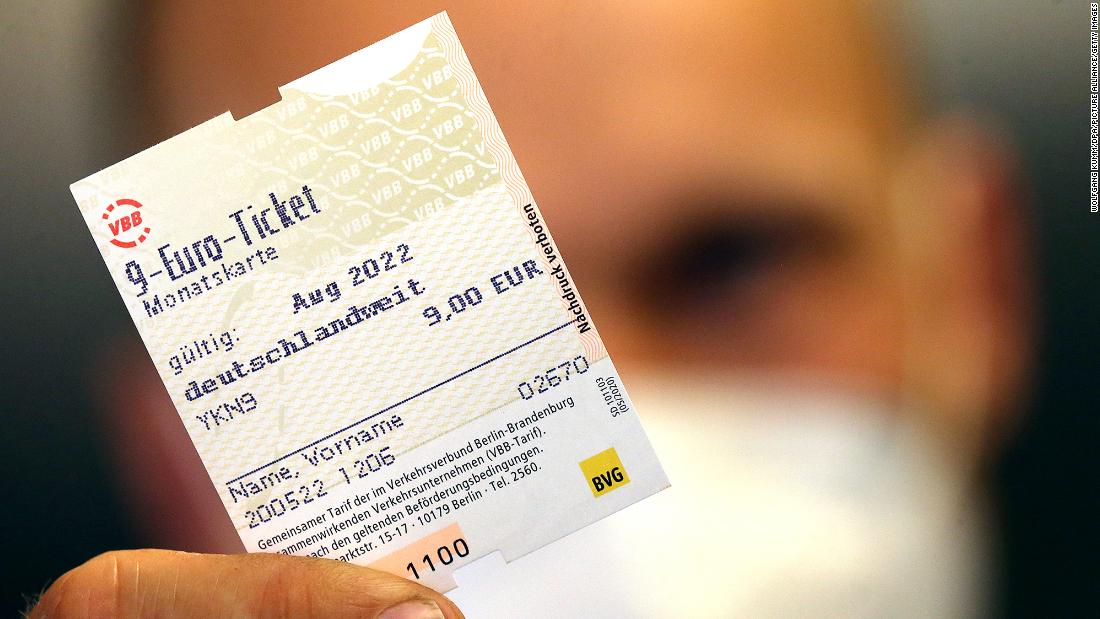Public transportation in Germany costs €49 for a monthly pass
German rail passes sold for €9 during the first three months
of the year totaled 52 million, according to the Association of German Transport Companies (VDV). The pass, which expired on August 31, offered
passengers unlimited use of local and regional German trains between the months
of June and August. The VDV has called on the German government to introduce a
replacement for the rail pass arguing that around 1.8 million tonnes of CO2
were saved during the bid period, a reduction equivalent to planting 90 million
trees.
As for the new pass, one of its biggest draws for users is
that it will be valid on all of the country's regional bus, train, and tram
networks, each of which offers a myriad of fare options that many find
confusing to navigate. “What fabulous news,” wrote Terry Reintke, co-president
of the Greens in the European Parliament, on her Twitter account. "And
yes: we must massively expand public transport."
Also Visit: Germany Visa from Pakistan
"After a meeting with his counterparts from the 16
German Länder, Transport Minister Volker Wissing announced that simplicity is
better. Wissing said the new ticket would not be printed and could be purchased
monthly or as an ongoing pass. This ticket is not valid for intercity trains,
just like the €9 ticket this summer.
However, doubts remain about its funding. The federal
government has offered to subsidize the pass with 1.5 million euros per year;
states have expressed a willingness to do the same, pending an agreement on
federal funding for regional train services. According to EURACTIV, the final
decision will be taken next week, at the conference of state premiers. In addition
to the new pass, which will be partly funded at the federal and regional
levels, states want additional funding to expand their transport networks.
There were many people who found the €49 plan too expensive,
according to Greenpeace. The environmental group says its own research shows
that a €29 ticket would double ridership without requiring additional
subsidies.
Meanwhile, public transport operators have complained about
the risks associated with a limited budget. They warned that without committing
to the necessary funding to operate the buses and trains, the benefit to the
public is limited. “I understand that the national public transport ticket is
of particular interest to the public. But the funding issues are just as
urgent,” Oliver Wolff, director of VDV, said in a statement. "We run the
risk of having to interrupt public transport services as they can no longer be
funded due to rising costs."
Data from the German federal statistics office Destatis
showed that short-distance train travel in Germany has increased over the past
three months. Compared to the first quarter of the year (January to March), it
increased by 46%.
According to the VDV, around 21 million €9 passes were sold
in June, in addition to the 10 million subscribers who automatically received
the discounted ticket. Surveys of 6,000 public transport users by VDV and
Deutsche Bahn found that one in five people were encouraged to switch to public
transport for the first time. The €9 pass cost the German government around 2.5
billion euros, according to Euronews.
For more News updates visit us







0 Comments